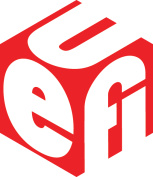 The basic input/output system (BIOS) used in most shipped commercial PCs is way past its use-by date according to many within the industry. As computer technology improves, some problems can arise due to the continued use of BIOS, such as drive size limits. For this reason, the industry is moving increasing toward the Unified Extensible Firmware Interface (UEFI).
The basic input/output system (BIOS) used in most shipped commercial PCs is way past its use-by date according to many within the industry. As computer technology improves, some problems can arise due to the continued use of BIOS, such as drive size limits. For this reason, the industry is moving increasing toward the Unified Extensible Firmware Interface (UEFI).
Brian Richardson, head of the technical marketing team at BIOS software developer AMI, said that BIOS is starting to hamper development as 64-bit computing becomes more common. "Drive size limits that were inherent to the original PC design - two terabytes - are going to become an issue pretty soon for those that use their PC a lot for pictures and video," Richardson said.
BIOS expects a machine to have the same basic internal setup as the first PCs. Adding support for extra peripherals has not been as easy or straight-forward as would be expected, and is not as efficient as it could be. UEFI does not require a computer to have this same basic blueprint that anything new has to adapt to or work around.
It does not have a specific port for a keyboard for example, or expect that a keyboard device be connected in any one way. "All it says is that somewhere in the machine there's a device that can produce keyboard-type information," said Mr Doran. This helps with the use of soft keyboards, touchscreens and other input devices.
"The extensible part of the name is important because we are going to have to live with this for a long time," Doran said. System administrators responsible for many remote machines could benefit from the widespread change in many ways, as UEFI can easily support more basic net protocols, making remote management easier from the "bare metal" upwards.
For consumers, the biggest noticeable change would be the start-up time of the computer. "At the moment it can be 25-30 seconds of boot time before you see the first bit of OS sign-on," he said. "With UEFI we're getting it under a handful of seconds."
"In terms of boot speed, we're not at instant-on yet but it is already a lot better than conventional Bios can manage, and we're getting closer to that every day."













